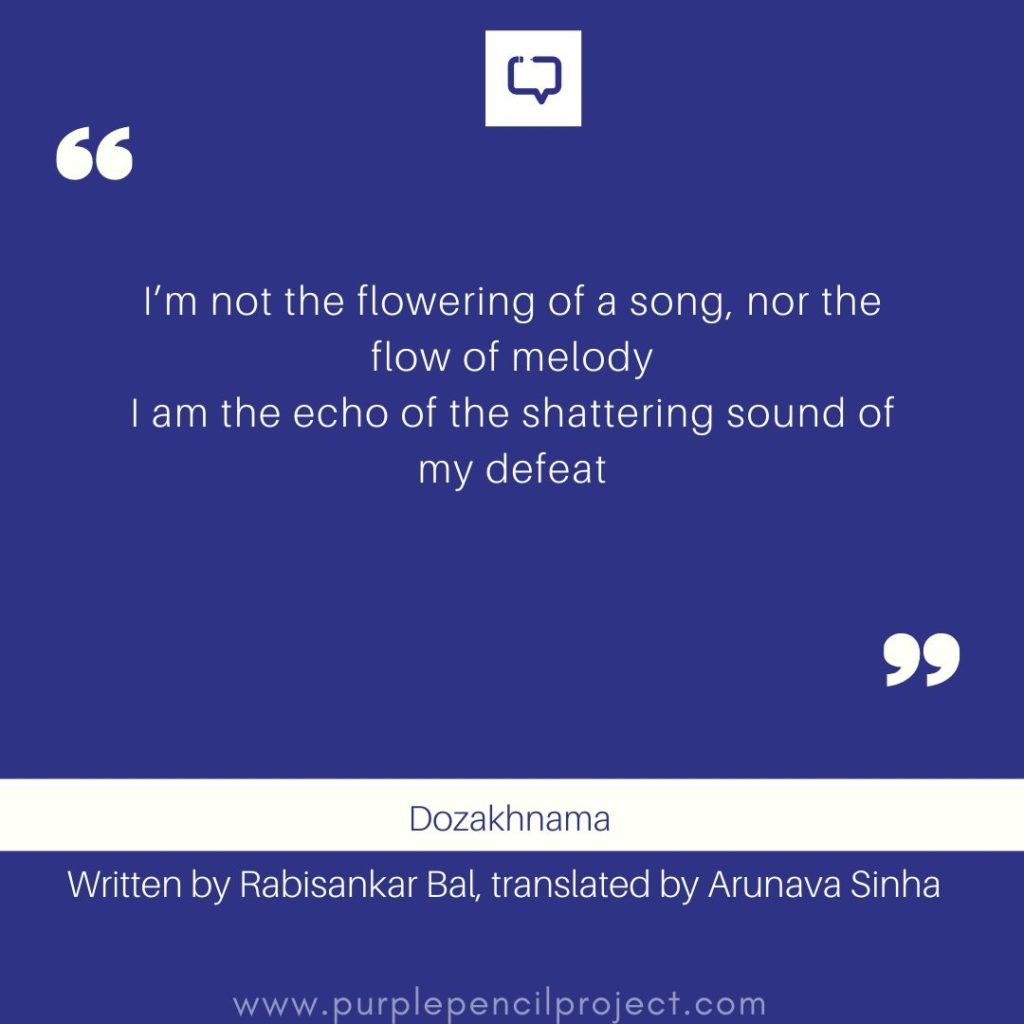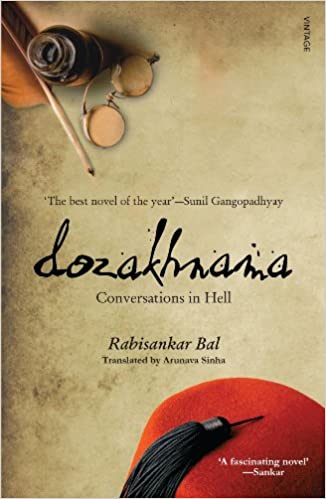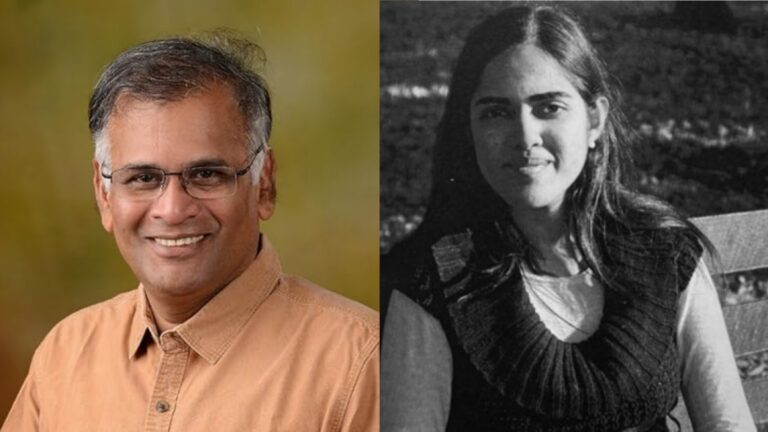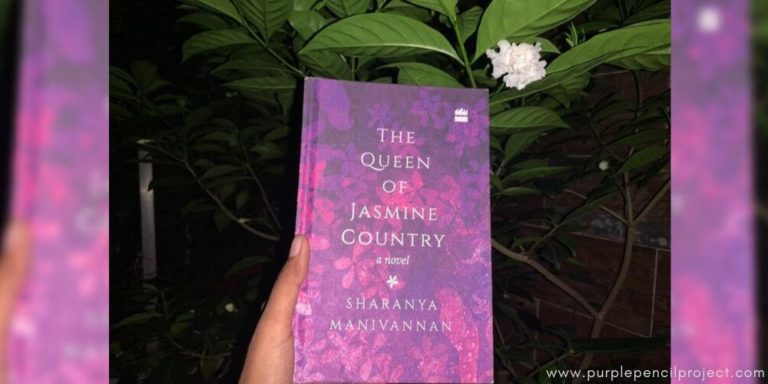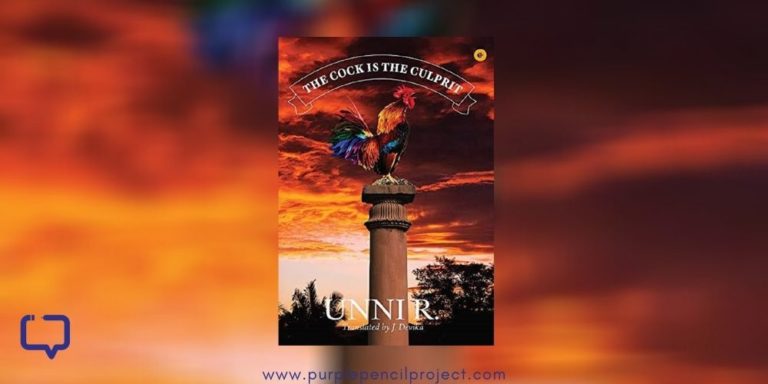Translated by Arunava Sinha
Background
- Dastan is an Urdu word that means ‘story’; and the poetic travesties of life and death are beautifully weaved with dexterity in the novel Dozakhnama.
- Originally written in Bengali by Rabisankar Bal, it was translated into English by Arunava Sinha.
- Sadat Hasan Manto and Mirza Asadullah Beg Khan Ghalib are two voices of the subcontinent, who were born in India at different times.
Dastaan toh daastan’i hotein hain voh akelepaan mein jeetein hain, aur phir akelepaan mein maar jaate hain
(Dastaan is Dastaan, they live in loneliness and then die in loneliness)
We encourage you to buy books from a local bookstore. If that is not possible, please use the links on the page and support us. Thank you.
Inception
Lying in their respective graves, Ghalib and Manto have a conversation, a conversation that smells of petrichor emanating from the freshly bathed soil, like a work of art at the back of muslin.
Dozakhnama begins with a journalist who is handed a manuscript, by a deranged man who is haunted by its stories, during his stay at Lucknow. The manuscript written in Urdu turns out to be a novel written by Sadaat Hassan Manto. Since the journalist is cannot read Urdu but is mystified by the poetic fervour of the language, he takes it to a translator in Calcutta, and there begins a ballad warped in splendour and magnifique (that the cover promises).
Voices Retreat
There is a dreadfully-surreal atmosphere that borders Dozakhnama; neither were Manto and Ghalib contemporaries nor was there a chance of them meeting each other. One is lying in Delhi, the other is in Lahore, two sides of an abhorred barbed wire.
The book, in the brooding atmosphere it builds, anchors the reader, away from the thunderstorms of life, away from the feeling of being lost, and into finding joy in the little things again – friendly banters, the rustlings of leaves, mellowed sunsets.
“I wrote about my love, my Ishq, on bloodstained paper day after day, Manto Bhai, my hand became numb, but still I wrote. I knew my ghazals would provide comfort to many people one day.”
Ghalib’s words flow like the adoring tranquillity of Yamuna and standing in opposition to the quiescence of grotesque ideals of Shahjahanabad.
Mantonama
On the other hand, Manto’s stories are the rhapsody composed of sand dunes of a forgotten time in Bombay, where he believed he could hear the city breathing, he felt its pulse the ignominious situational discomfort of Hiramandi stung his soul.
The homogeneity and the passivity made him detest almost all his contemporaries, except Ismat. There is a section where Ismat Chugtai in her sly banter tells Manto, “What a third-class love story miyah.” To this Manto retorts,
“What would have I done Ismat? What would have made you happy? If I would have slept with Begum and left her pregnant with my child, is that it? Then the love story would have been a brilliant one right? Then I could boastfully say there is no man like me, in this world. Did you want to see me like that, Ismat?”
Qissebaazi Fused in the Mehfil of Dozakhnama
The financial crisis, from women to alcoholism, has torn Ghalib and Manto apart. However, these two have been caught in the midst of a storm evoked by the barbarians not only for pleasure but also for the qisse and love.
After the sepoy revolt of 1857, the pomp of the Delhi royal court was extinguished and Ghalib witnessed the fall of Delhi with his own eyes. He survived the long-lasting perilous situation by clinging a stone to his heart. While Manto has carried the wounds of Partition. He has painted the picture of those relentless scars which he had witnessed over the years.
Final Verdict
The principle philosophical notion of Sufism is reiterated in the very fact that with every page our souls stay fastened to a warm swing whenever the heart breeze in contentment and when the mind takes a stroll into the sprawling magical world. All in all this remarkable novel has won the Bankim Award in West Bengal. Dozakhnama is a must-read for all readers.
Favourite Quote:
